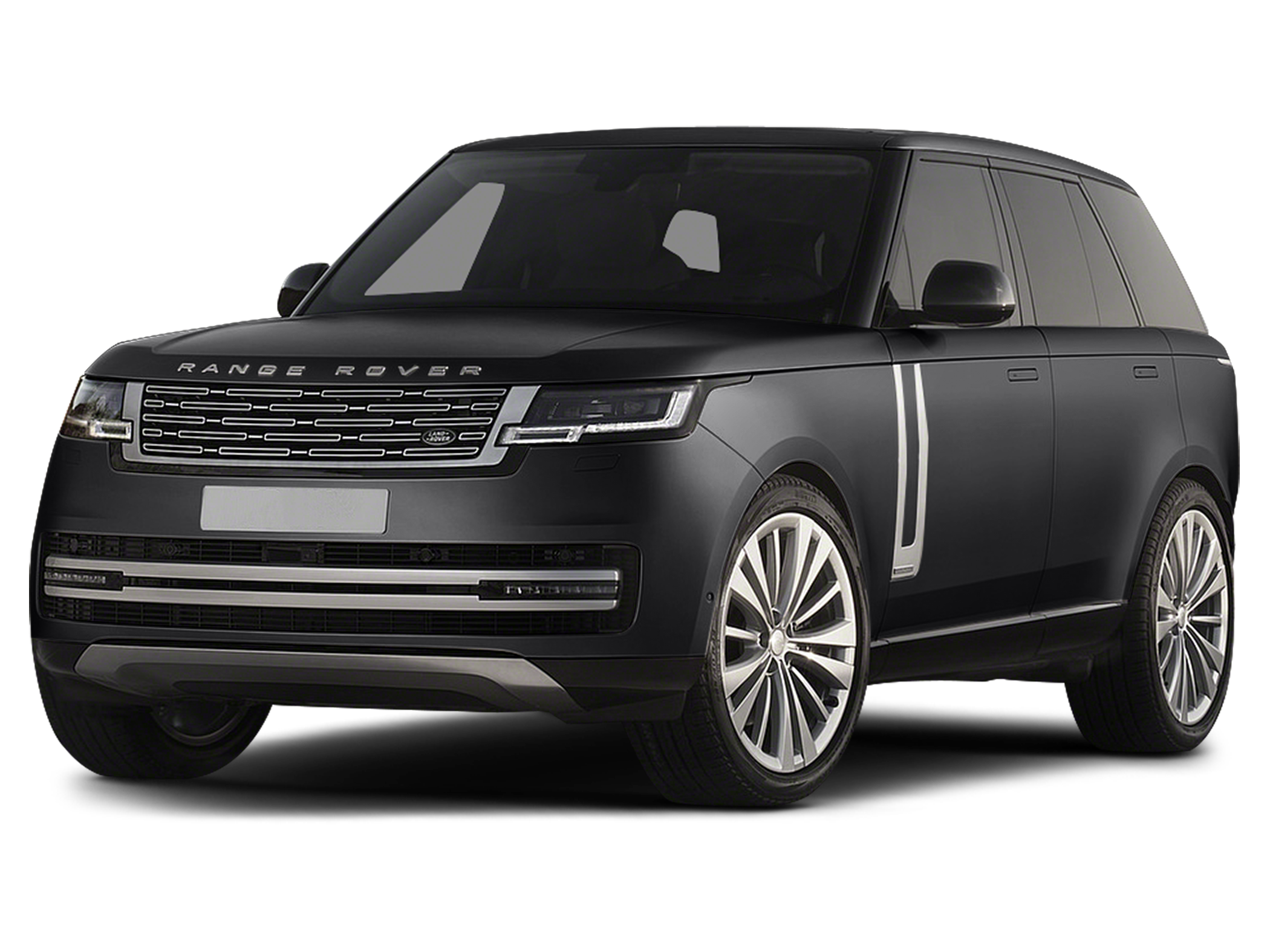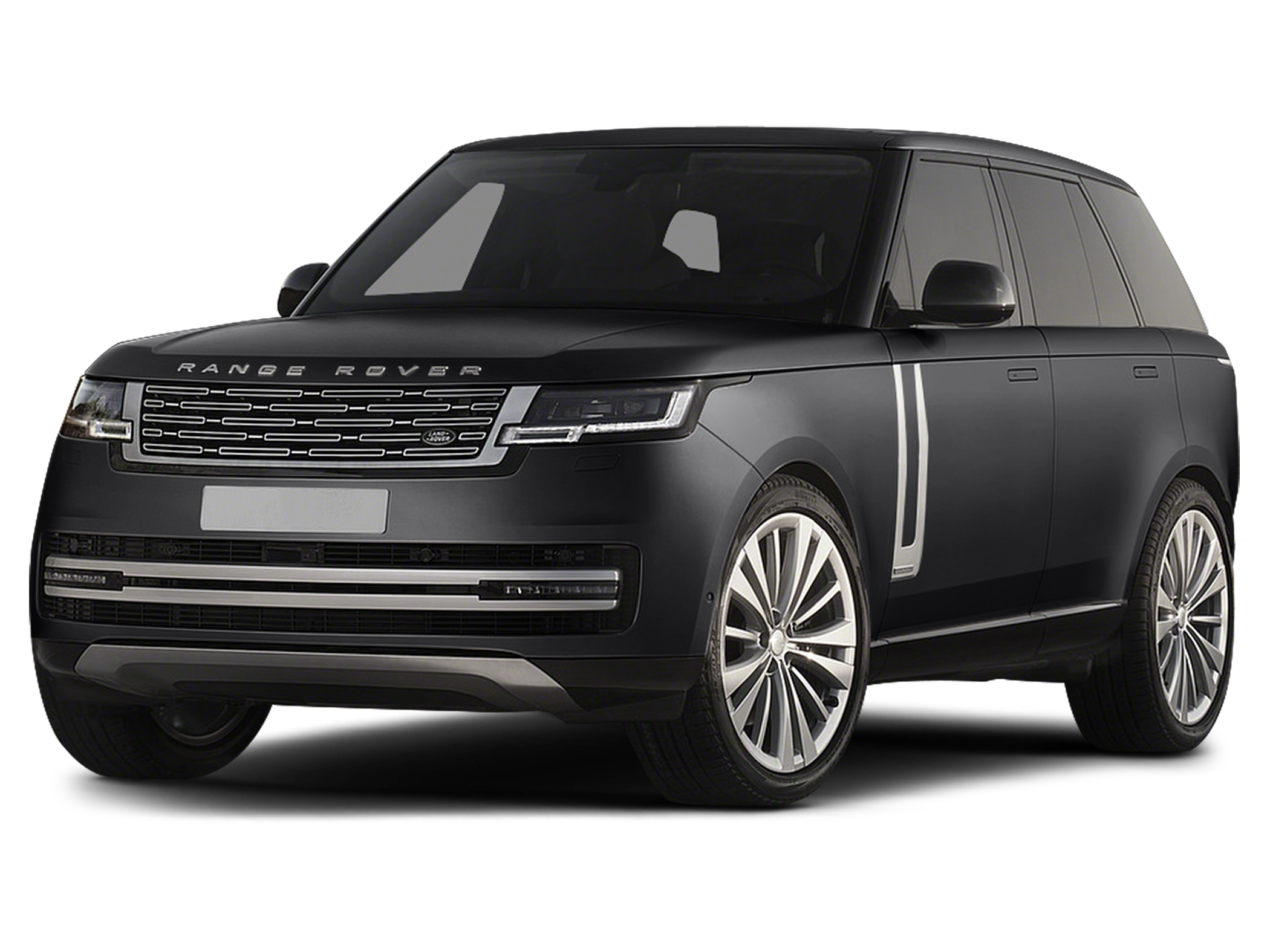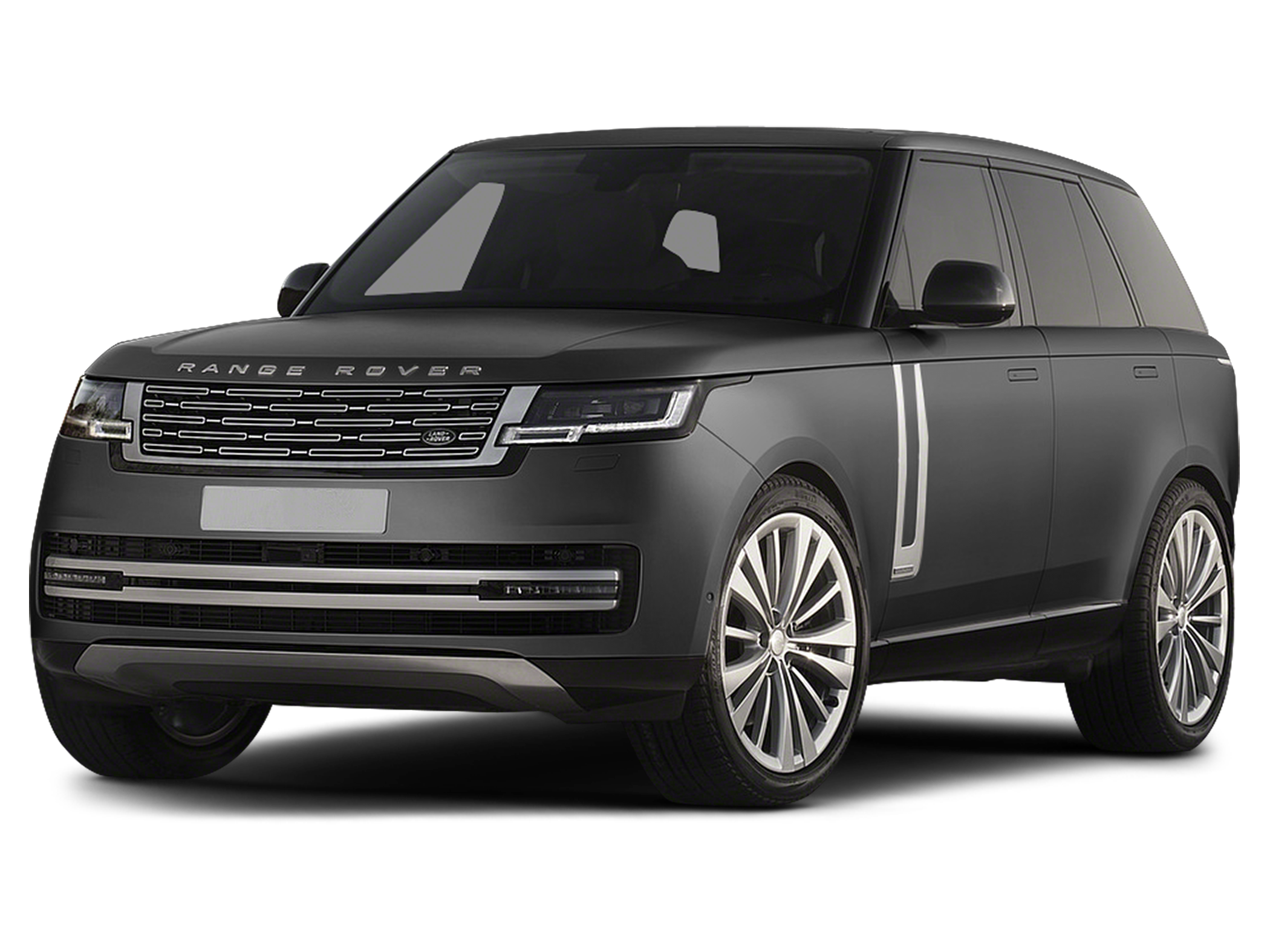REVIEWS AND RATINGS
What others are saying
REVIEW AND TEST DRIVE
2023 Land Rover Range Rover PHEV Review and Test Drive
Sitting in the lap of SUV luxury — though luxury's lap costs a lot.
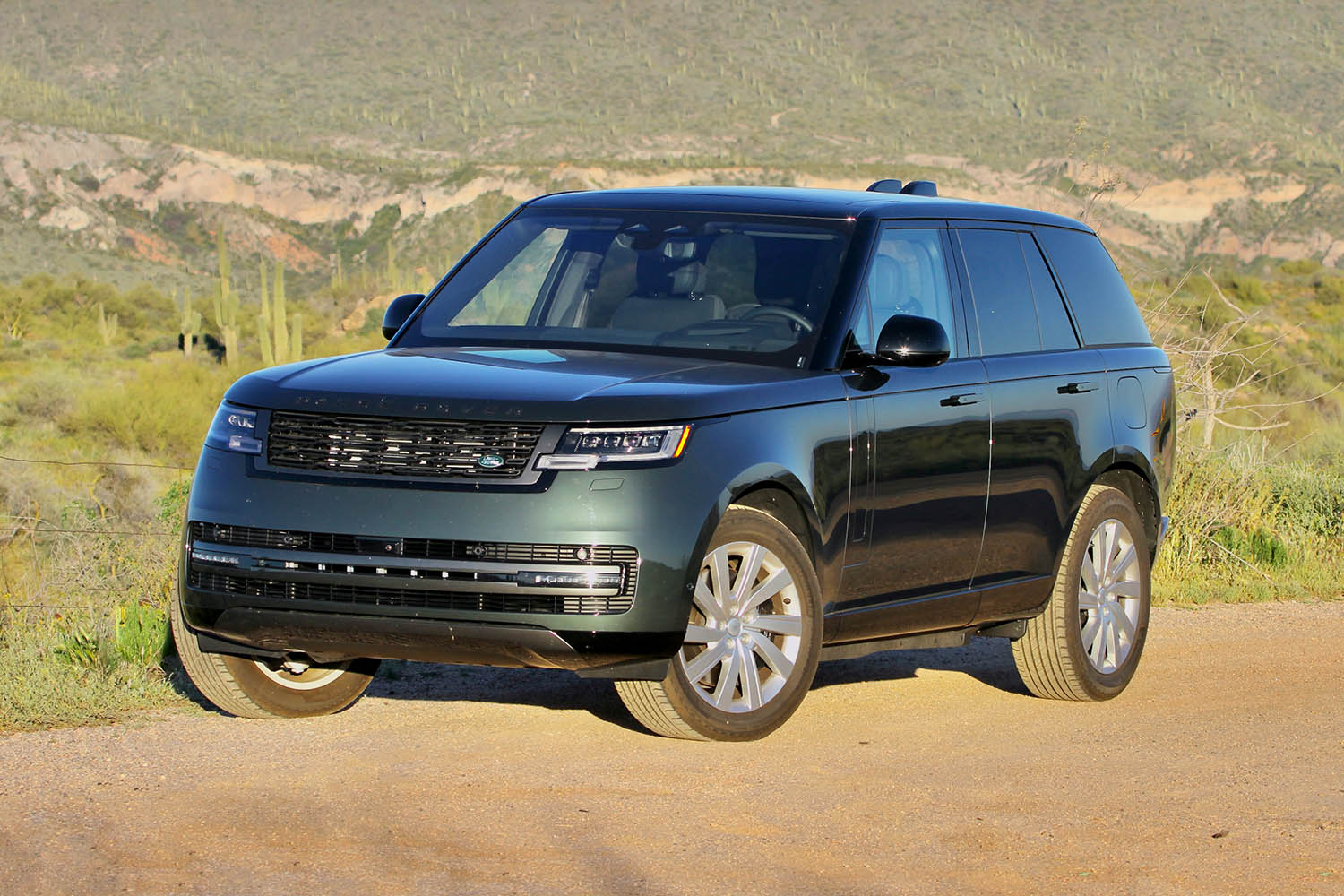 Jim Resnick
Jim Resnick
In terms of style and upper-crust motoring, I've seen very few SUVs that compare to the 2023 Land Rover Range Rover. The automaker has morphed the upright, boxy shape of Range Rovers past into something elegant and lithe — yet the SUV's reputation for stellar off-roading ability was still very much in evidence on my test drive.
Land Rover completely redesigned the Range Rover for the 2022 model year. In 2023, the lineup includes standard and long-wheelbase models in the base SE trim, the more generously equipped Autobiography version, and the even more generously equipped SV level. Prices range from about $110,000 to nearly $250,000 for the top-level SV version, including the required destination charge to ship the SUV from Land Rover's Solihull, England, assembly plant to your local dealership.
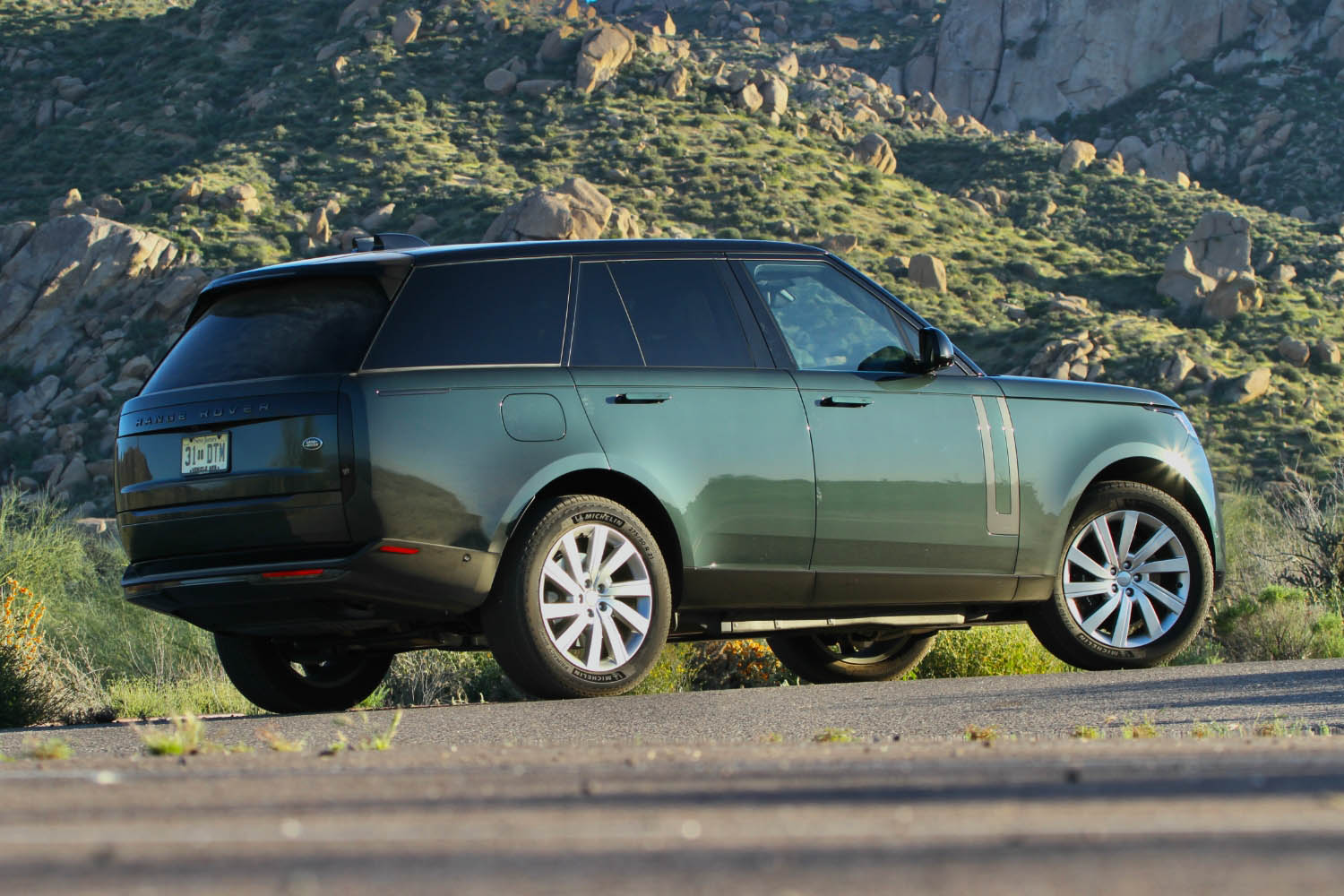 Jim Resnick
Jim Resnick
The 2023 Range Rover models offer three powertrains — including a plug-in hybrid — each with ample power, a sumptuous interior, and plush ride quality. However, Range Rover ownership comes with a high entry price.
Land Rover provided the Range Rover plug-in hybrid model I tested in Arizona. Among the test vehicle's more significant options were the Hot Climate Pack (cooled center console, electric rear window blinds, four-zone climate control, and cabin air purification) and the Technology Pack (ClearSight camera-based rearview mirror, a 110-volt outlet, and a head-up display). It also had heated, cooled, and massaging front seats; heated and cooled rear seats; and a heated steering wheel. The options list included upgraded LED headlights, extra-cost interior and exterior detailing, and a full-size spare tire, as well.
With these options, the as-tested manufacturer's suggested retail price rose to $126,310, including the $1,475 destination charge.
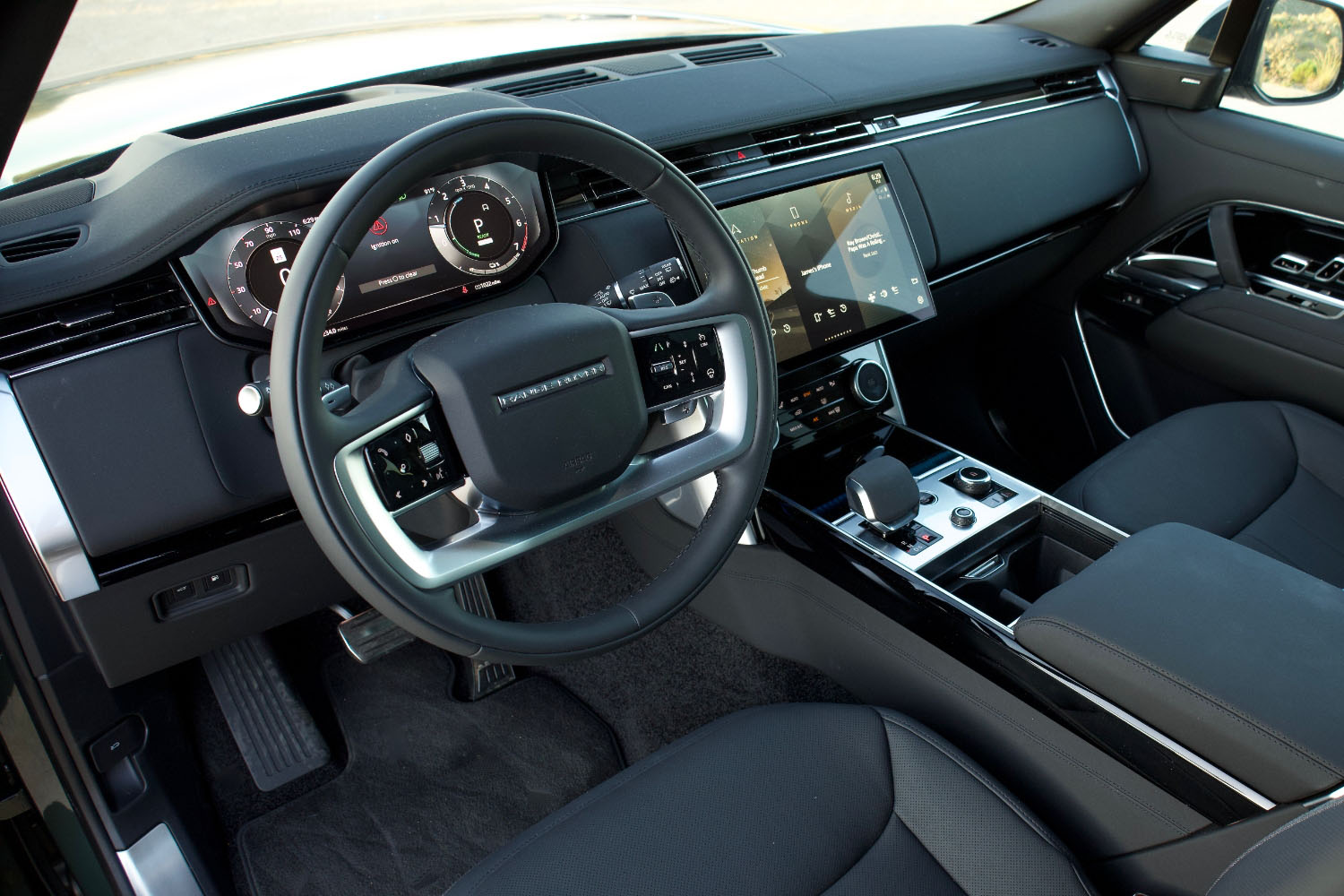 Jim Resnick
Jim Resnick
2023 Range Rover PHEV Review: The Design
The Land Rover Range Rover is about the most handsome SUV I've seen on the market today. Every exterior panel in my test vehicle was virtually flush with the next, including the door handles, which deployed upon unlocking the doors. The body panels fit and flowed like a futuristic concept car at an auto show.
Inside the test vehicle, even with the no-extra-cost Ultrafabrics and Kvadrat (non-leather textile) upholstery, I was cosseted in well-bolstered but soft seats and surrounded by highbrow materials all around. Every touch point was precise yet warm. Even the brushed stainless steel, non-leather, hard plastic, rubberized plastic, and glass that I touched or swiped felt rich and substantial. And the woven fabric at the sides of the seats — which had the weave of a tight burlap — felt durable and rich.
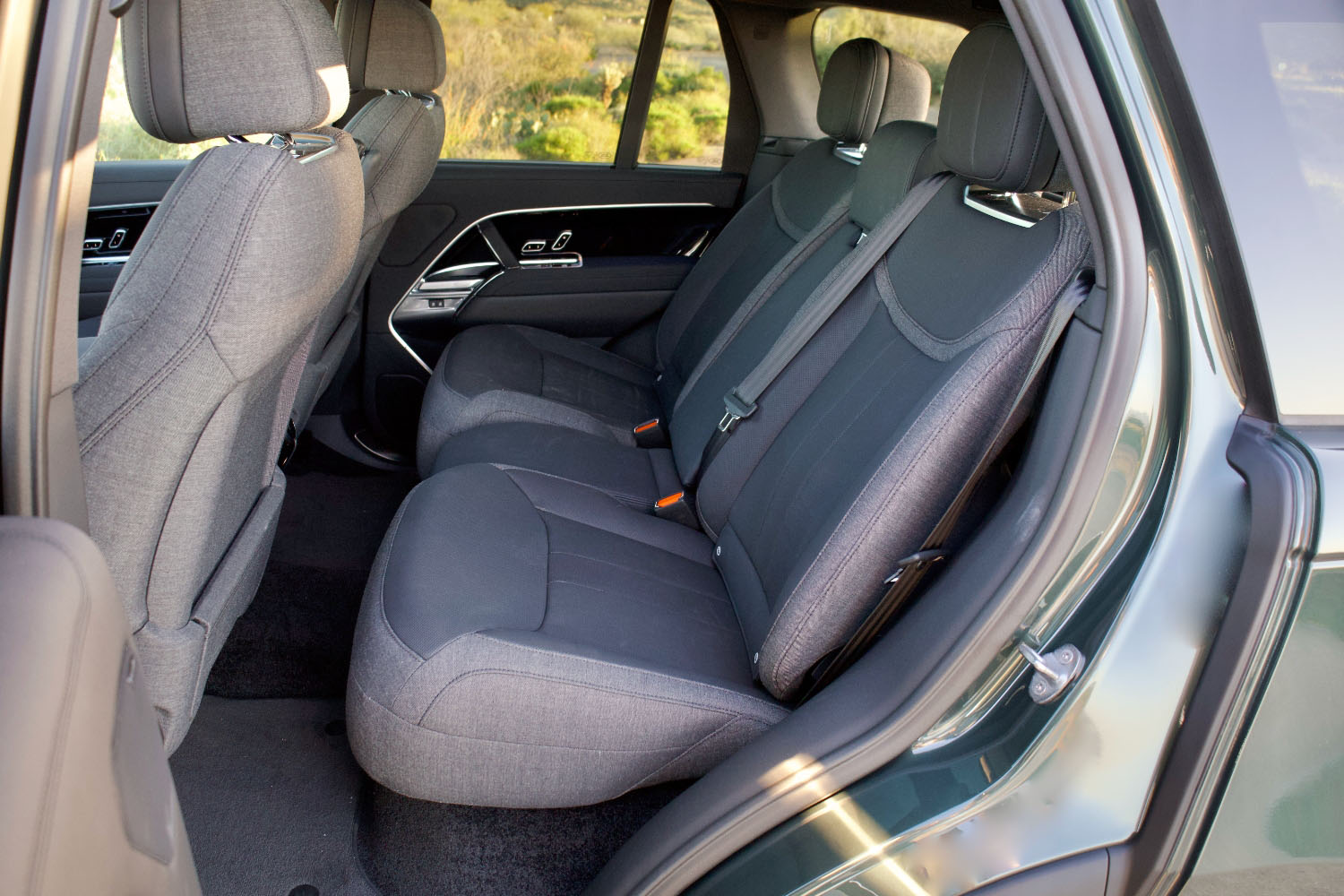 Jim Resnick
Jim Resnick
There were only a few controls at the helm that were not operated via a screen menu, including the transmission lever, climate dials and buttons, drive-mode selector, console-mounted audio volume, and stalk-mounted wipers and headlights. They were all logically placed and well marked.
The center infotainment screen offered a tablet format with main tiles and submenus for audio, navigation, phone integration, drive-mode details, and other functions to page through. In addition, a configurable digital instrumentation panel presented the driver's gauges as conventional dials or quadrants of data. I toggled back and forth but ultimately settled on the quadrant setting. It showed a bit more information at all times and was also more visually compelling.
With lots of headroom and cabin width, the front seats seemed likely to provide room for any body type. Multiple adjustments made configuring and memorizing them easy. Land Rover has fitted adjustable inboard armrests to the Range Rover's front seats for years, but they seemed superfluous to me on the 2023 model, since the center console's storage bin lid was so close and adjacent. Only drivers who put the seat in the topmost position would likely benefit from these old-school inboard armrests. They also blocked the seat belt receptacle slightly for me.
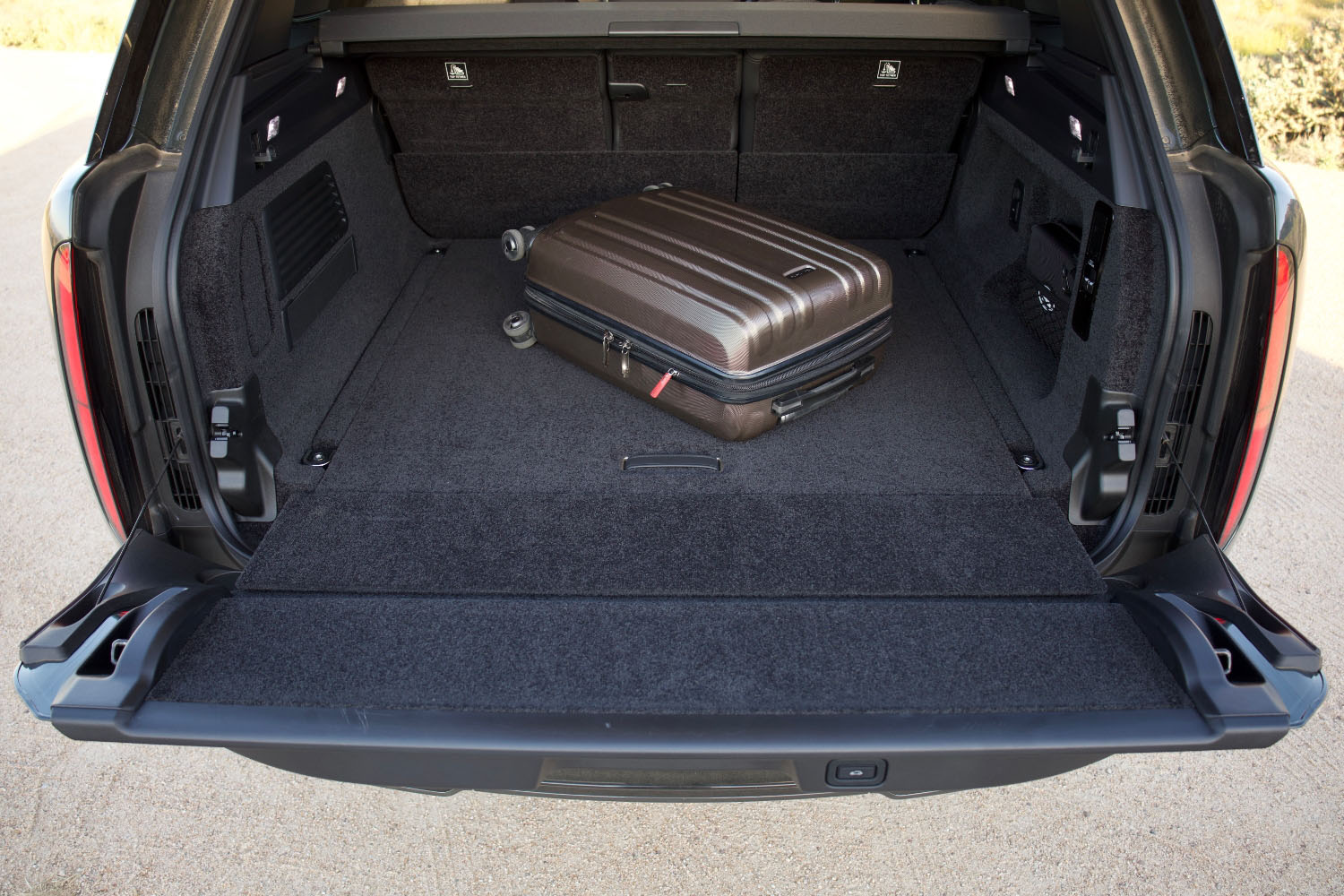 Jim Resnick
Jim Resnick
Rear-seat passengers don't have quite as many adjustments to toy with, but there's lots of headroom and legroom, even in the standard-wheelbase vehicle. An additional 7.6 inches of legroom in the long-wheelbase versions makes the SUV practically fit to shuttle NBA players.
Cargo space behind the standard-wheelbase model's back seat measures 40.7 cubic feet, a trifle shy of the Mercedes-Benz GLS's 42.7 cubic feet behind the second row of seats. It's also well shy of the BMW X7's cargo capacity with the second row in use, which measures 48.6 cubic feet. Fold the back seat down and the Range Rover can hold 83.5 cubic feet, less than the Mercedes (84.7) and BMW (90.4).
With the test vehicle's optional full-size spare tire, there was no underfloor storage, but that was more than offset by the bonus of having a full spare, particularly given the chance of something untoward taking place while off-roading.
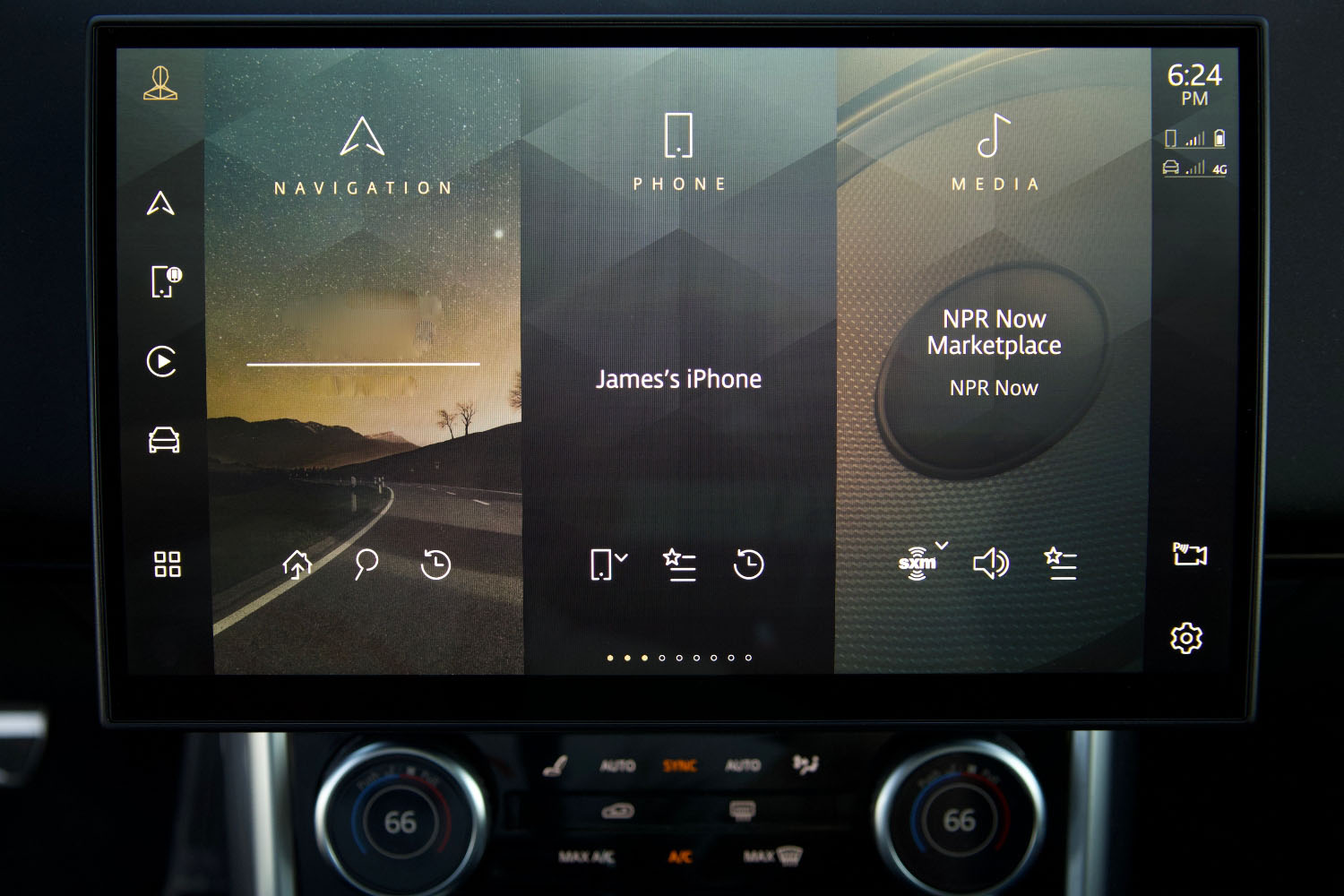 Jim Resnick
Jim Resnick
2023 Range Rover PHEV Review: The Technology
The Range Rover features Land Rover's Pivi Pro setup, which looked and felt a little old-school. Its digital voice-assistant technology wasn't quite as accomplished as what I've seen from BMW or Mercedes.
The system has a 13.7-inch digital instrument display, which complements the separate 13.1-inch center touchscreen with eight main menu tiles. You can swipe left and right to access the tiles and configure them to prioritize specific functions as you see fit. In addition, Land Rover updates Pivi Pro over the air, so you should be able to stay current on functionality.
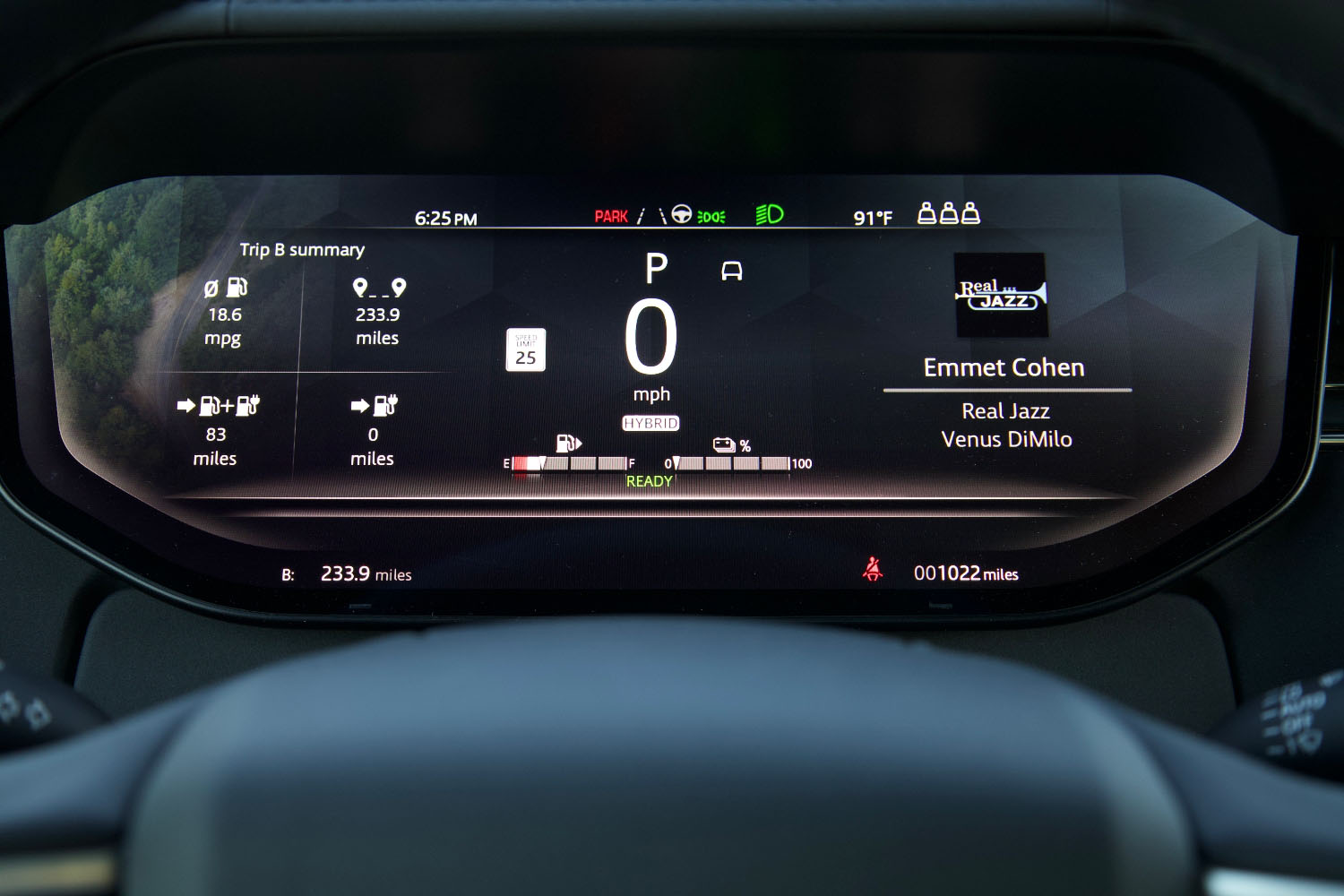 Jim Resnick
Jim Resnick
Apple CarPlay and Android Auto are standard, and an optional Online Pack offers a 4G connection.
Pairing my phone proved quick and glitch-free, and the system picked up where podcasts and audio files had been interrupted without fail. However, I found that functionality wasn't what it should have been. While the virtual shortcut buttons lining either side of the infotainment screen were welcome, it wasn't always clear to me where I might find certain features. In addition, if CarPlay or Android Auto was running, it wasn't immediately apparent how to get back to the native terrestrial or satellite radio.
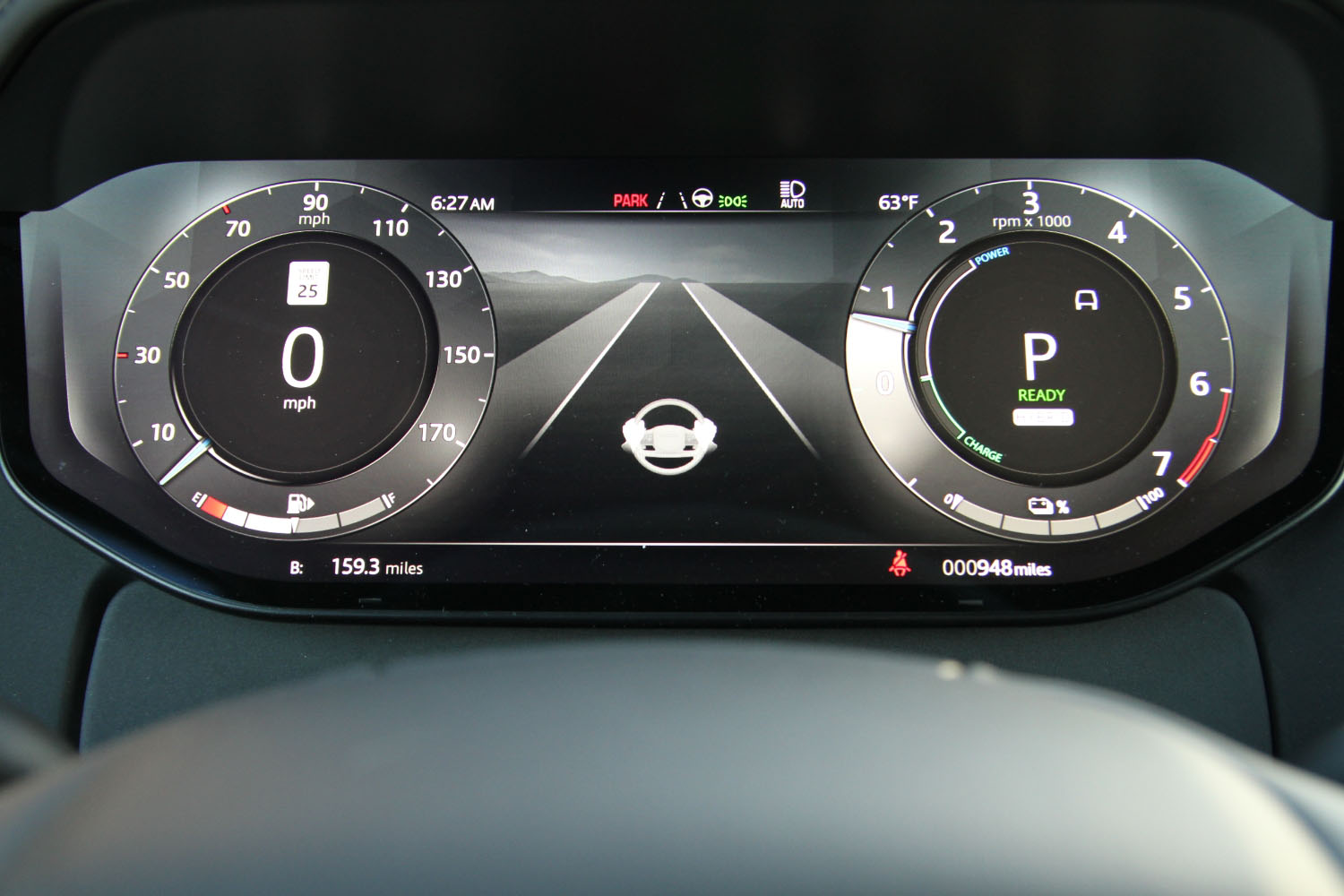 Jim Resnick
Jim Resnick
During my testing, the Range Rover's onboard voice-recognition system responded to commands accurately, at least partially thanks to some artificial intelligence learning capabilities built into the system. Curiously, it understood "Chipotle" better than "Costco" (maybe it was making a lifestyle comment in the process). Voice control could also make climate adjustments using commands such as "lower temperature," "raise the fan speed," and the like.
During my test drive, the Range Rover's adaptive cruise control latched onto cars on the highway ahead quickly. It kept pace with that leading car smoothly, even if it braked or accelerated. Then, as that leading car might peel off onto an off-ramp or change lanes, the system paused before resuming the cruising speed I'd set.
Lane-keeping and lane-centering assistance in the Range Rover felt the most seamless and sophisticated I've experienced since driving a Mercedes EQS. You'll know it's active thanks to a visual indicator that illuminates lines in the center portion of the gauges. Should you remove your hands from the wheel, the car summons you to retake control after 10 seconds.
As of this writing, neither the Insurance Institute for Highway Safety nor the National Highway Traffic Safety Administration (NHTSA) had conducted crash tests on the 2023 Range Rover.
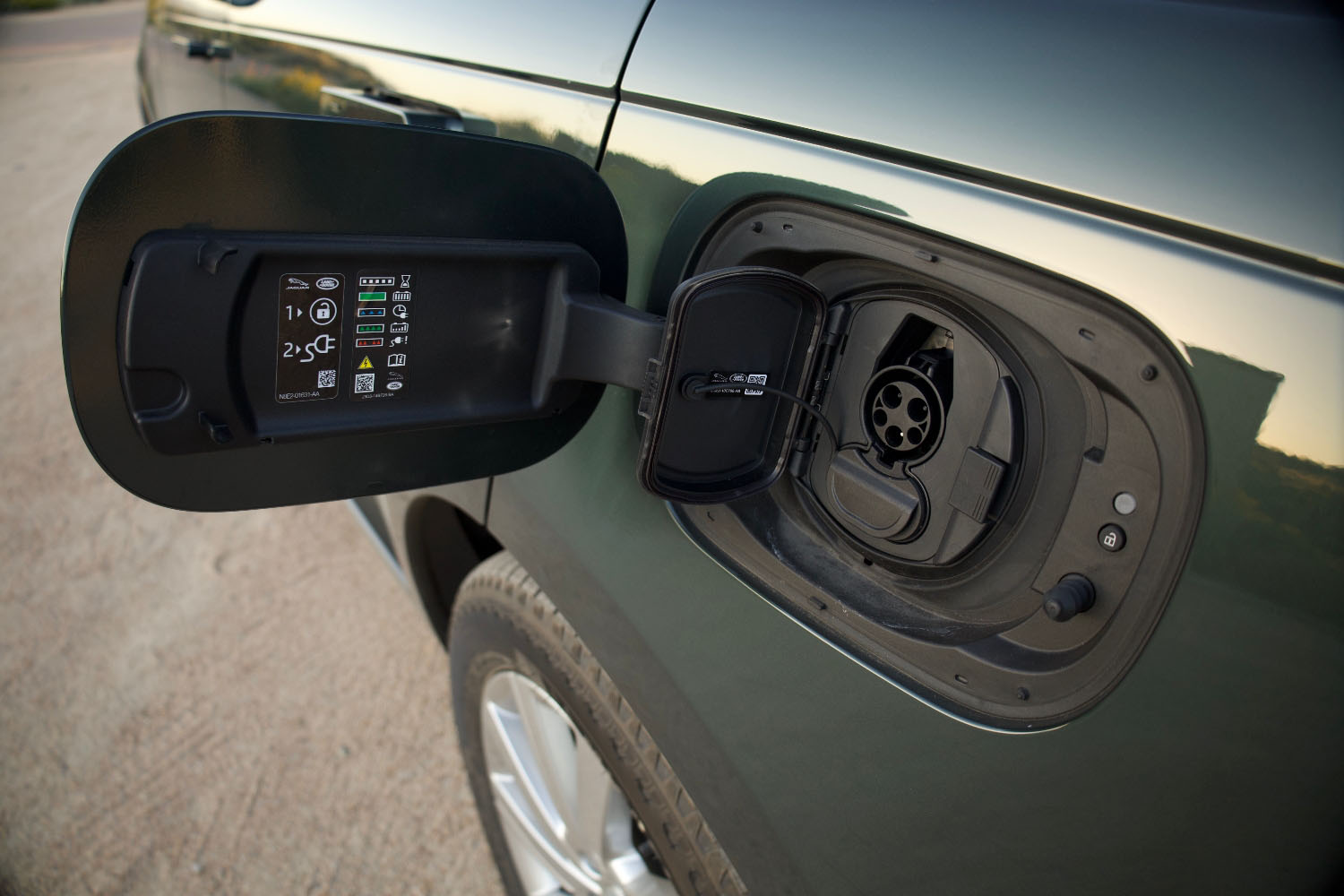 Jim Resnick
Jim Resnick
2023 Range Rover PHEV Review: The Drive
The Range Rover SE plug-in hybrid electric vehicle has a turbocharged 3.0-liter inline six-cylinder engine, a 105-kW electric motor, and a 38.2-kWh battery pack. Output measures 434 horsepower and 457 lb-ft of torque, and the Range Rover PHEV uses an eight-speed automatic transmission to power all four wheels.
Land Rover expects the Range Rover P440e to give you around 50 miles of pure electric driving range. In addition, it is compatible with 50-kW DC fast charging and can achieve an 80% charge in less than an hour.
During one stretch of my test, driving gingerly and without the air conditioning turned on to avoid combustion engine engagement, I traveled an indicated 54 miles on the battery alone before the turbocharged engine finally kicked in. However, fuel economy when driving the Range Rover as a hybrid was not as impressive. I averaged 20.1 mpg in mixed driving, a bit lower than the 21-mpg rating on the window sticker, but not drastically.
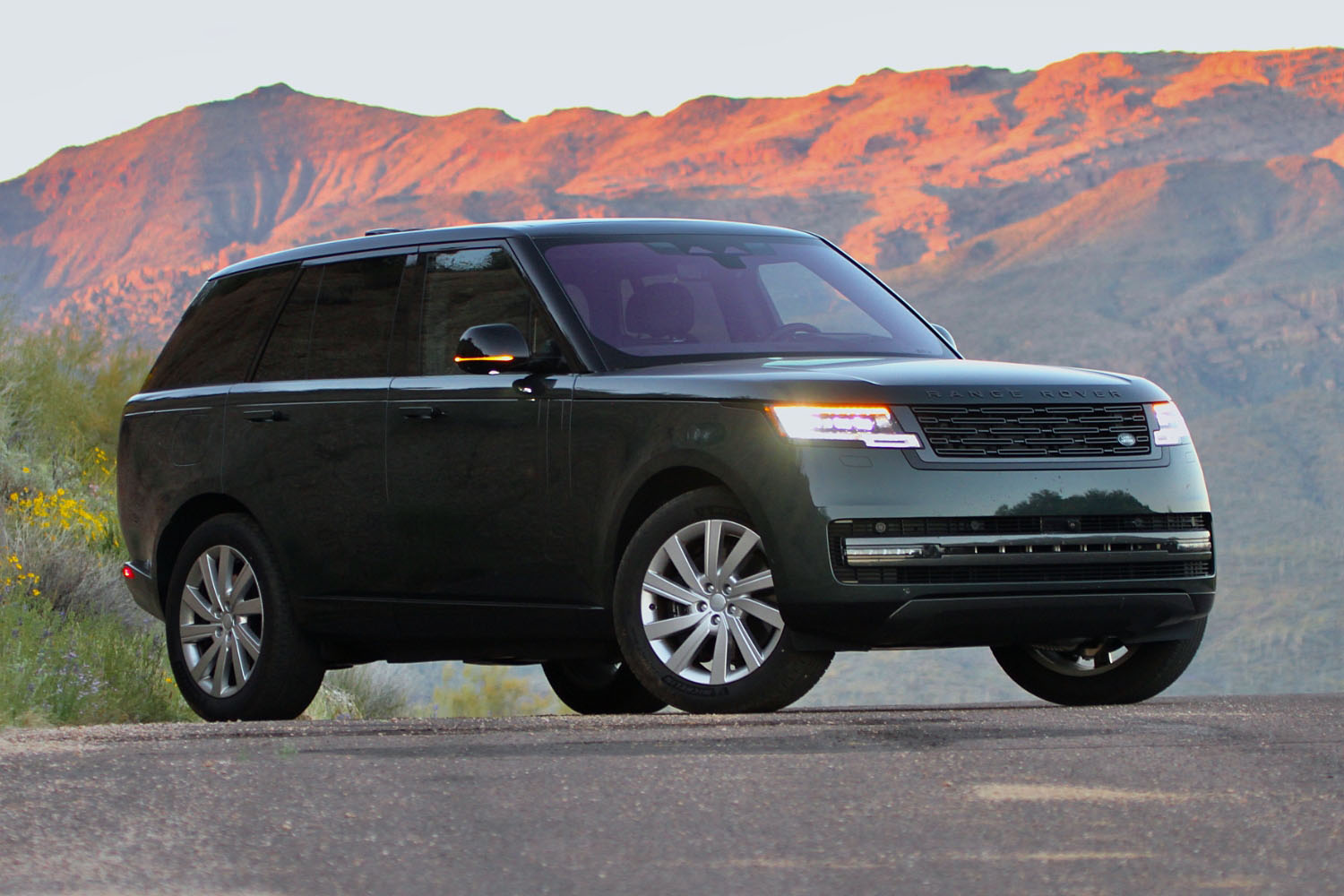 Jim Resnick
Jim Resnick
Power from the gasoline engine was hushed to a whisper under hard acceleration, and wind noise was nonexistent. The Range Rover PHEV accelerated smartly and was borderline fast, despite weighing nearly 6,000 pounds.
A moderately aggressive set of 21-inch wheels and tires came on my test vehicle, and they dealt handily with the mud, ruts, and poor traction when off-roading.
I didn't find much mud to fling from those tires, but a morning spent off-roading on approved trails of dirt and rocks, plus fording a stream or two north of Phoenix, Arizona, proved no real challenge for the Range Rover. A camera at the nose helped note proximity to obstacles and trees. Increased ride height cleared the chassis from threats at ground level. And one of the user-friendliest four-wheel-drive systems in the world worked flawlessly during my drive.
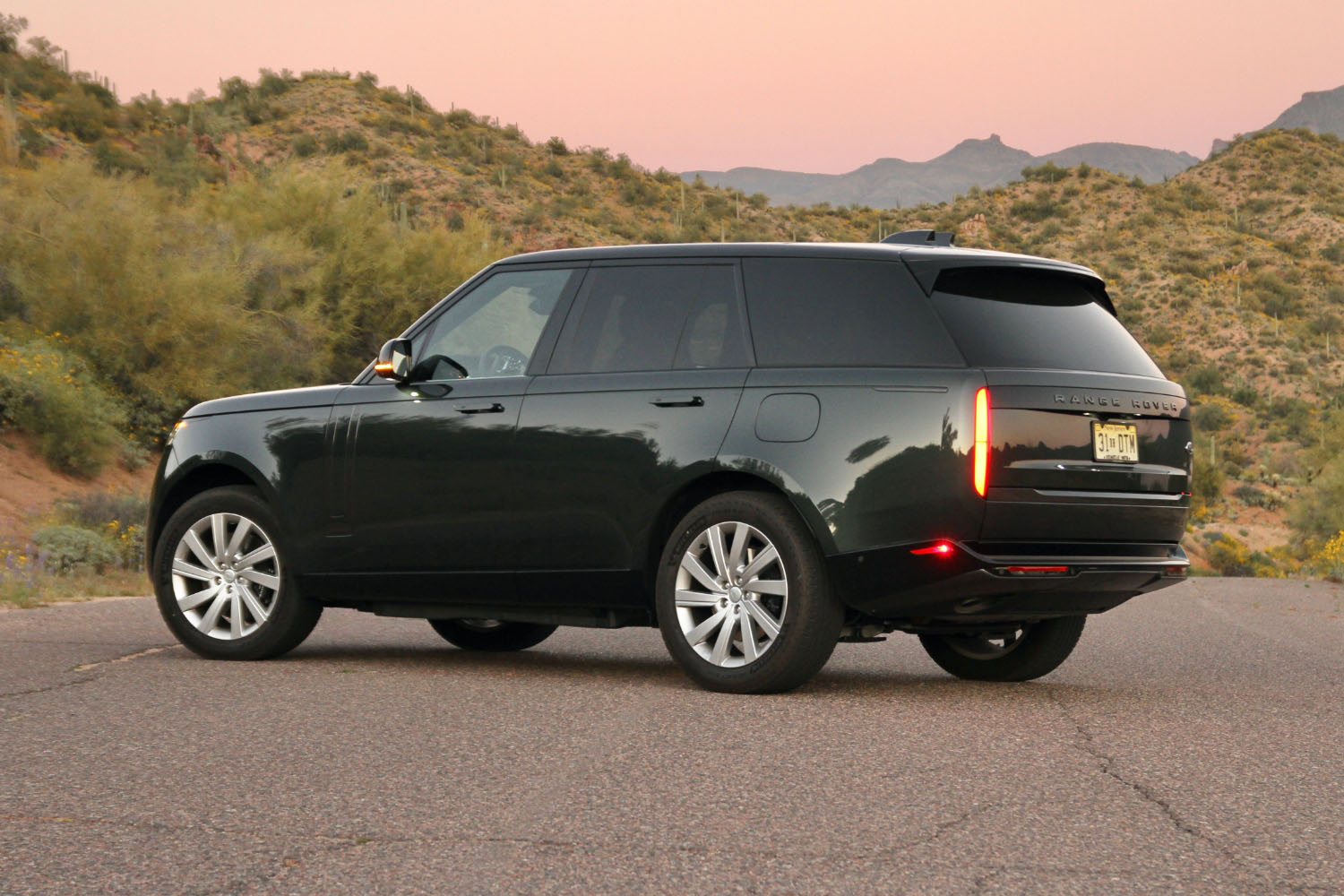 Jim Resnick
Jim Resnick
Despite the off-road readiness of those tires, they remained very quiet when back on pavement, with barely any road noise except on the lousiest, most abrasive, sun-beaten surfaces under the Arizona sun. Given all the mechanical business going on underneath, it's a tribute to precise engineering, excellent sound insulation, or both that the Range Rover SE is nearly silent under any circumstance, including wide-open throttle.
The downsides I found to that plushness were noticeable body roll and unsure footing during fast pavement moves. Braking power was stellar, though the Range Rover PHEV's pedal lacked linearity. Instead, it felt touchy and sensitive when first applied, and it took a while to acclimate and bring the SUV to a smooth stop like a trained chauffeur.
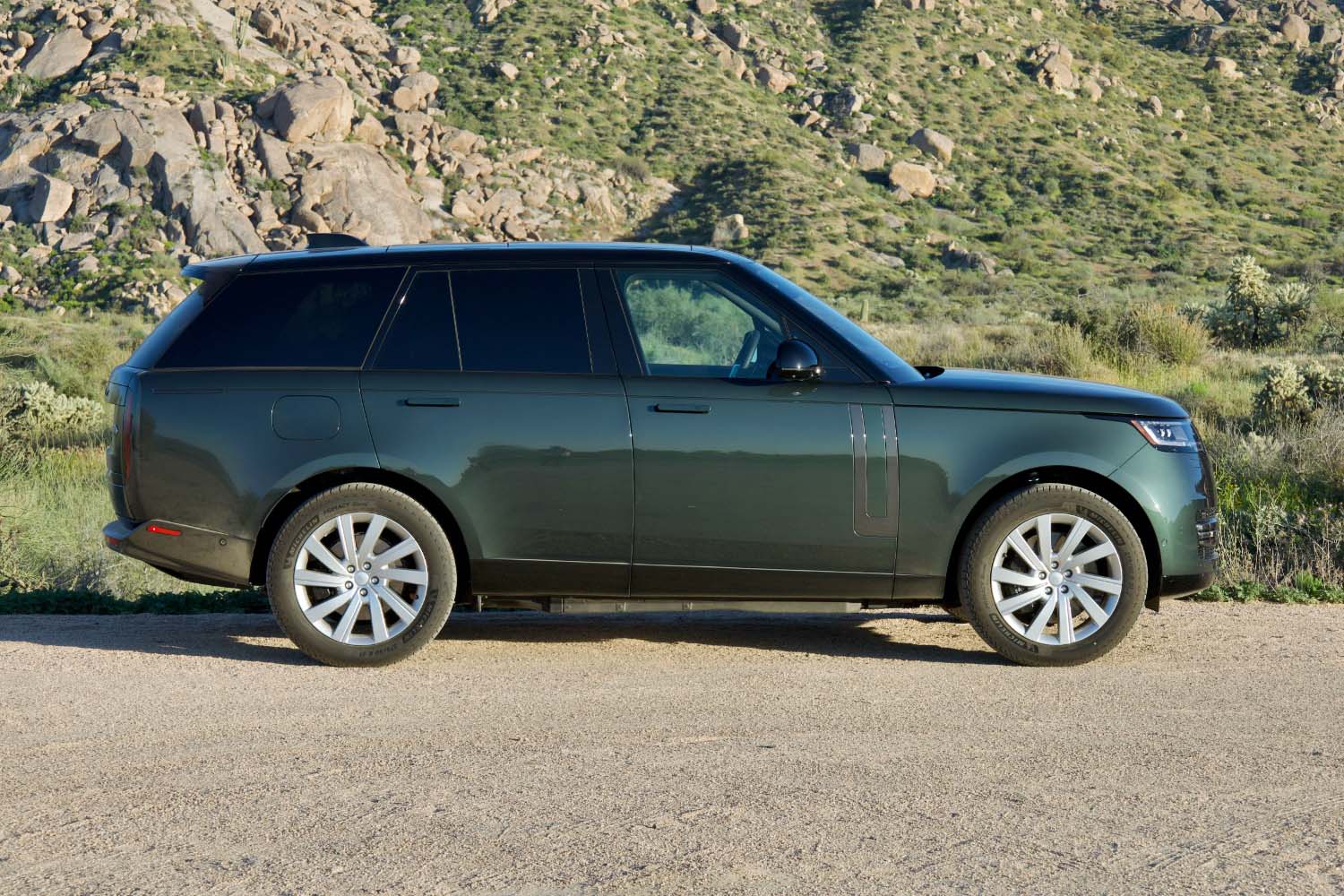 Jim Resnick
Jim Resnick
Is the 2023 Range Rover PHEV a Good SUV?
The 2023 Range Rover competes favorably against its competition in on-road driving and the lap-of-luxury factor. From what I saw in the test drive, it will obliterate them off-road. It might be a touch shy on cargo space against those competitors, but I felt the regal feel of driving it made up for that.
However, an honest evaluation of a Range Rover must include the high buy-in price, in addition to any work the vehicle might need down the road. Nevertheless, there's no doubt in my mind that Range Rovers are lovely vehicles to operate as long as they are, well, operational. After all, Land Rover landed in the basement of the most recent J.D. Power Dependability Study. Luckily, new Range Rovers carry a four-year or 50,000-mile warranty.
So the Range Rover is a joy to drive, without question. But I cannot help thinking that this five-star level of design and engineering deserves similar five-star reliability.
Written by humans.
Edited by humans.
 Jim Resnick
Jim ResnickFrom racing exotic sports cars, to ranking new cars, to peeling back layers of cover up in an exhaust emissions scandal, Jim has chronicled the automotive sector for decades. Jim has also worked inside the corporate headquarters of three carmakers, and therefore understands how the automotive sausage is really made. But Jim’s affinity for vehicles takes a back seat to finding the truth and the cultural implications of modern transportation. He has also lectured at universities to engineering and policy students and faculty on the industry’s relationship with legislation in the wake of the diesel exhaust emissions scandal several years ago. Put simply, Jim reports on autos, mobility, tech, car culture, and the traffic jam of topics within.
